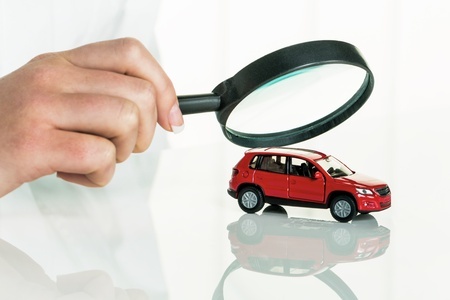Buying a Used Car
Buying a used car instead of a new one may be a better financial decision, but buying a good used car for a good price is a little more challenging. You have to:
1. Decide what car you want (and which will be a good choice).
2. Find one (there are interesting alternatives).
3. Learn the value of used cars (so you pay a reasonable price).
4. Evaluate the condition of used cars (to make sure you buy a good one).
Research
Consumer Reports has excellent general information about the quality, reliability, safety ratings, ballpark insurance rates, and recalls of any car, but to get access to these articles online you must pay a $6.95 monthly subscription fee or $30 for the year.
Finding a Good Used Car
There are some obvious places to look for a used car: local newspapers, used car lots, watching for “for sale” signs. Some other places to look: online car sellers or car rental companies in parked and passing vehicles or corporation fleet cars (whose cars have been professionally maintained, have low mileage, and since they are written off as business expenses, often are offered at lower prices for a quick sale).
The Internet also offers some interesting possibilities. For example, a site called imotors.com will find the car you’re looking for from reputable sources (usually leased cars), perform a thorough check-over, and deliver your car to a nearby delivery center with a 7 day return policy and a 3 month/3,000 mile warranty.
Pricing
To find out the value of a specific car in your geographic area, you can use the Kelley Blue Book, which is the guide that banks typically use to value cars. Beside the blue book, looking through your local paper can give you a sense of what comparable cars are selling for.
Evaluating Used Cars
With a little knowledge, a lot of common sense, and maybe some professional help, you can competently size up the quality and mechanical health of a used car.
But before you take the time to test drive a car that you think may be the one, check the title of the car. By checking the title, you can learn if the car:
- Has ever been totaled in an accident or natural disaster (and then repaired and sold for a large profit)
- Was returned as a lemon
- Was ever repossessed
- Had its odometer rolled back
- Has been in a serious accident (in some states)
These are all good reasons to walk away from a car even before taking a look at it. To check the title, go to CarFax to access their database of over 17 billion vehicle records (in the U.S. and Canada).
Finally, after you’ve checked out the title, inspected the car, and taken it for a proper test drive, invest the $30-60 it will cost to take it to an independent, trusted mechanic for a thorough check over. A mechanic will be able to perform a more thorough diagnostic, and spot problems that could cost you a lot of money down the road. It’s a cheap price for peace of mind.

